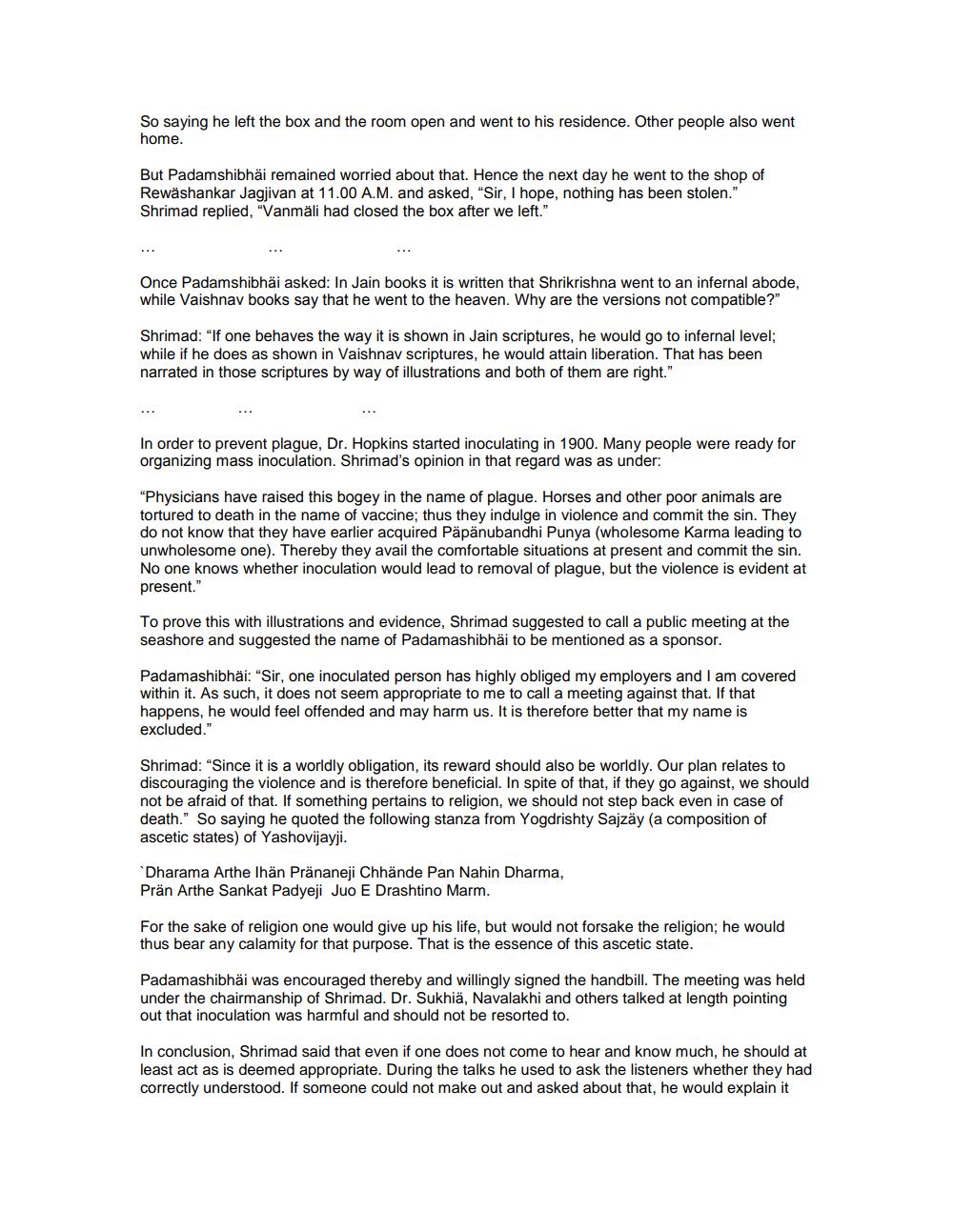________________
So saying he left the box and the room open and went to his residence. Other people also went home.
But Padamshibhäi remained worried about that. Hence the next day he went to the shop of Rewäshankar Jagjivan at 11.00 A.M. and asked, "Sir, I hope, nothing has been stolen." Shrimad replied, "Vanmäli had closed the box after we left."
Once Padamshibhäi asked: In Jain books it is written that Shrikrishna went to an infernal abode, while Vaishnav books say that he went to the heaven. Why are the versions not compatible?"
Shrimad: "If one behaves the way it is shown in Jain scriptures, he would go to infernal level; while if he does as shown in Vaishnav scriptures, he would attain liberation. That has been narrated in those scriptures by way of illustrations and both of them are right."
In order to prevent plaque, Dr. Hopkins started inoculating in 1900. Many people were ready for organizing mass inoculation. Shrimad's opinion in that regard was as under:
"Physicians have raised this bogey in the name of plague. Horses and other poor animals are tortured to death in the name of vaccine; thus they indulge in violence and commit the sin. They do not know that they have earlier acquired Päpänubandhi Punya (wholesome Karma leading to unwholesome one). Thereby they avail the comfortable situations at present and commit the sin. No one knows whether inoculation would lead to removal of plague, but the violence is evident at present."
To prove this with illustrations and evidence, Shrimad suggested to call a public meeting at the seashore and suggested the name of Padamashibhäi to be mentioned as a sponsor.
Padamashibhäi: "Sir, one inoculated person has highly obliged my employers and I am covered within it. As such, it does not seem appropriate to me to call a meeting against that. If that happens, he would feel offended and may harm us. It is therefore better that my name is excluded."
Shrimad: "Since it is a worldly obligation, its reward should also be worldly. Our plan relates to discouraging the violence and is therefore beneficial. In spite of that, if they go against, we should not be afraid of that. If something pertains to religion, we should not step back even in case of death." So saying he quoted the following stanza from Yogdrishty Sajzäy (a composition of ascetic states) of Yashovijayji.
Dharama Arthe lhän Pränaneji Chhände Pan Nahin Dharma, Prän Arthe Sankat Padyeji Juo E Drashtino Marm.
For the sake of religion one would give up his life, but would not forsake the religion; he would thus bear any calamity for that purpose. That is the essence of this ascetic state.
Padamashibhäi was encouraged thereby and willingly signed the handbill. The meeting was held under the chairmanship of Shrimad. Dr. Sukhiä, Navalakhi and others talked at length pointing out that inoculation was harmful and should not be resorted to.
In conclusion, Shrimad said that even if one does not come to hear and know much, he should at least act as is deemed appropriate. During the talks he used to ask the listeners whether they had correctly understood. If someone could not make out and asked about that, he would explain it




